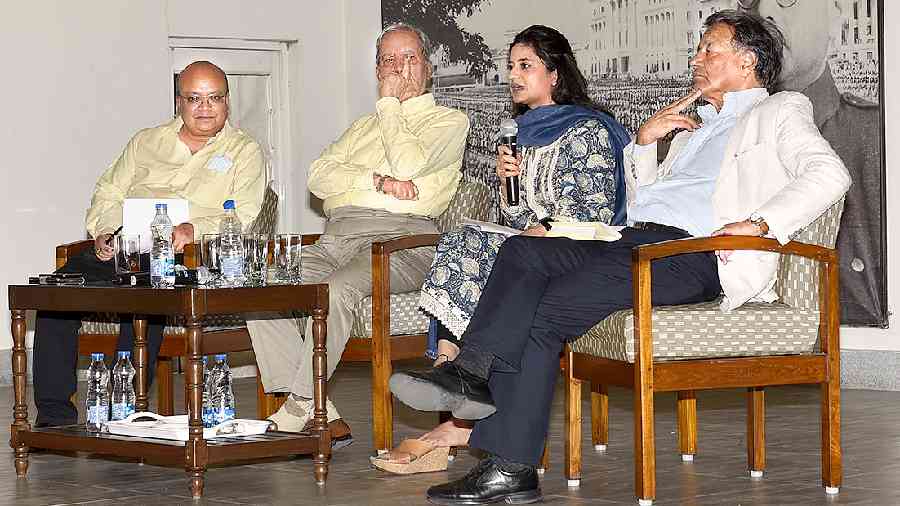The abrogation of Article 370 on August 5, 2019, has “alienated” people in Kashmir and left people in Jammu and Ladakh unhappy, said the speakers at the Krishna Bose Symposium on “Kashmir since August 5, 2019”.
The symposium conducted by the Netaji Research Bureau on Friday was addressed by Iltiza Mufti, the daughter of Mehbooba Mufti, the former chief minister of Jammu and Kashmir, Air Vice-Marshal Kapil Kak (retired) and Siddiq Wahid, a senior fellow at the Centre for Policy Research, New Delhi.
“There is a deep sense of alienation among the people and you can’t really blame them. You have taken everything away from them. You have disempowered them. Mind you, for the first time in the history of India, a semi-autonomous state was demoted,” said Iltiza.
Iltiza, who in November 2020 had dared to ask Union home minister Amit Shah to try and walk around Kashmir freely, in her address explained what triggered this growing sense of alienation.
“In Kashmir, we don’t have the freedom to speak. After 2019 the cases of human rights violation has only gone up. Now the state of justice is such that a man loses his son in a fake encounter,not only will you slander him, but you also will refuse to handover the body to the father,” she said.
She cited the instance of how her mother Mehbooba Mufti was detained by the police “instantly” in Kashmir on August 5 as she dared to organise a protest.
“Even today’s seminar. Can I have something like this in Kashmir? Of course not. So we don’t have any freedom. When BJP says that Kashmir is at par with the rest of India, I feel, they mean it in a wrong way,” said Iltiza
“It’s a kind of disempowerment, stealing of identity. They have thrown out a democratically elected government for over four years now. We don’t know when the elections will be held next,” Kapil Kak said. Siddiq Wahid has the abrogation was an exercise of “raw power”.
“The message that I felt was ‘we can end you, and we are going to end you’,” said Wahid, formerly VC of Islamic University, Kashmir. The symposium was chaired by Sumantra Bose, a professor of international and comparative politics at the London School of Economics and the grand nephew of Netaji Subhas Chandra Bose.
Sugata Bose, Harvard professor of Oceanic History and the elder son of Krishna Bose, said: “The abrogation was a deliberate humiliation heaped on the people of that region. It seems that one point that was not fully thought through by the regime was the provocation to China. We have seen the aggression of PLA in Ladakh,” he said.
